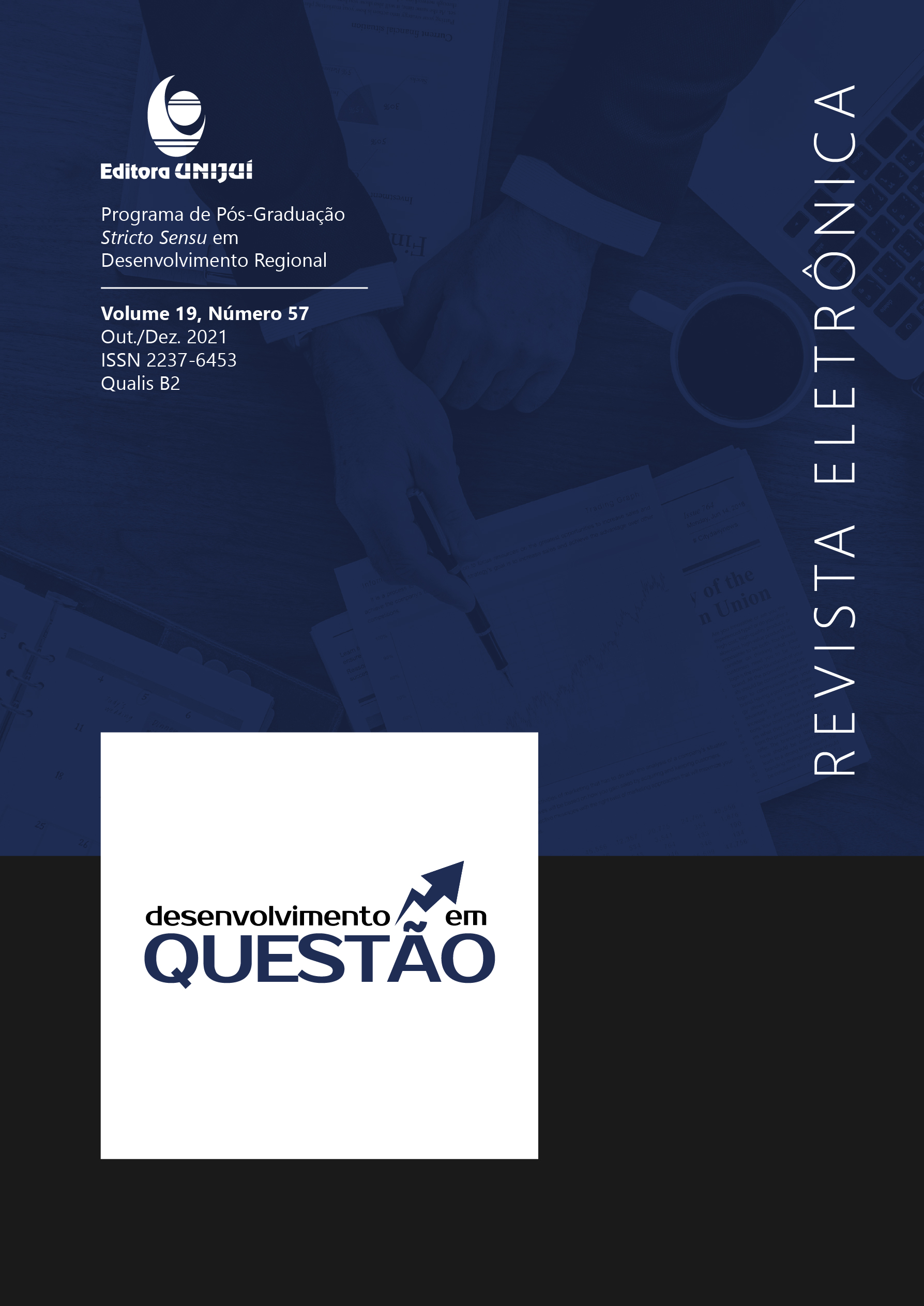Canais Curtos de Comercialização e Condições de Vida dos Agricultores de Brasília
SHORT FOOD SUPPLY CHAINS AND FARMERS’ LIVELIHOODS IN BRASILIA
DOI:
https://doi.org/10.21527/2237-6453.2021.57.11415Palavras-chave:
Agricultura familiar. Comercialização. Canais curtos.Resumo
A comercialização com vista à melhoria das condições de vida é um desafio a ser enfrentado pelos agricultores familiares, particularmente pelos assentados da reforma agrária. Este trabalho busca averiguar se diferentes perfis produtivos e comerciais implicam alterações nos níveis dos capitais natural, financeiro, humano e social dos assentados da reforma agrária do Distrito Federal - DF. A pesquisa envolveu 156 assentados de 11 assentamentos. Os comportamentos relativos à produção e à comercialização foram utilizados como critérios para análise de cluster. Os quatro clusters identificados foram comparados a partir dos capitais por meio do teste não paramétrico de Kruskal-Wallis. Os resultados revelam que, apesar de os assentados não acessarem os canais de comercialização mais significativos em termos de volume comercializado, tais como redes varejistas e Ceasa, canais alternativos como feiras, mercados institucionais e comunidades que sustentam a agricultura - CSA têm oportunizado aos assentados melhoraria de suas bases de recursos materiais e sociais. Esses resultados evidenciam a importância dos canais curtos de comercialização para o desenvolvimento dos assentamentos da reforma agrária do DF.
Downloads
Publicado
Como Citar
Edição
Seção
Licença
Ao publicar na Revista Desenvolvimento em Questão, os autores concordam com os seguintes termos:
Os trabalhos seguem a licença Creative Commons Atribuição 4.0 Internacional (CC BY 4.0), que permite:
Compartilhar — copiar e redistribuir o material em qualquer meio ou formato;
Adaptar — remixar, transformar e criar a partir do material para qualquer fim, inclusive comercial.
Essas permissões são irrevogáveis, desde que respeitados os seguintes termos:
Atribuição — Atribuição — os autores devem ser devidamente creditados, com link para a licença e indicação de eventuais alterações realizadas.
Sem restrições adicionais — não podem ser aplicadas condições legais ou tecnológicas que restrinjam o uso permitido pela licença.
Avisos:
A licença não se aplica a elementos em domínio público ou cobertos por exceções legais.
A licença não garante todos os direitos necessários para usos específicos (ex.: direitos de imagem, privacidade ou morais).
A revista não se responsabiliza pelas opiniões expressas nos artigos, que são de exclusiva responsabilidade dos autores. O Editor, com o apoio do Comitê Editorial, reserva-se o direito de sugerir ou solicitar modificações quando necessário.
Somente serão aceitos artigos científicos originais, com resultados de pesquisas de interesse que não tenham sido publicados nem submetidos simultaneamente a outro periódico com o mesmo objetivo.
A menção a marcas comerciais ou produtos específicos destina-se apenas à identificação, sem qualquer vínculo promocional por parte dos autores ou da revista.
Contrato de Licença (para artigos publicados a partir de 2025): Os autores mantêm os direitos autorais sobre seu artigo, e concedem a Revista Desenvolvimento em Questão o direito de primeira publicação.











